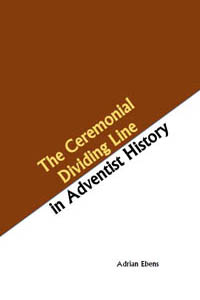Our Saviour, Divine
OUR SAVIOUR, DIVINE.
RH AUGUST 22, 1893. G.I. Buttler
IT is an inspiring thought to the true disciple ever to realize that our Saviour who has under taken our salvation, is a divine being, really and truly God, as properly so called as the Eternal Father himself, and therefore almighty to save.
Such a Saviour we need. In such a Saviour we can truly trust, knowing nothing is impossible with him. What he has undertaken to accomplish he will surely perform. We need therefore have no fears that he will fail on his part to do all he has undertaken, all he has promised.
In this age of unbelief, of so-called " higher criticism,"when the tendency is to whittle down everything supernatural to a mere human standard, we cannot too much emphasize the grand fact of our Lord's divinity. We need to study the blessed word, and learn all it teaches of the nature, position, character, and glory of our Messiah and his work. We should lift him up in our own minds and before our fellow-men, that his exalted station may be properly recognized. In doing this, we not only show true honor to him, but to the Father also who has assigned him this position, and between whom there is perfect union and sympathy.
And we get clearer conceptions of God's love, and the true comprehension of the grand scheme of human redemption. The theme is glorious, It has been treated ably by many who have given it a conspicuous place in their sermons and writings.
The writer does not hope to bring out anything specially new, but merely seeks, by a new grouping of the facts revealed, to bring to remembrance things new and old, though this theme is ever new, and always inspiring.
Upon the divinity of Christ depends the divinity of the Christian religion. If he is a mere human being, his religion is of mere human origin—a weak and fallible matter. " What think ye of Christ? "
Jesus asked the Pharisees. "Whose son is he?
They say unto him, The son of David. He saith unto them, How then doth David in spirit call him Lord, saying, The Lord said unto my Lord, Sit thou on my right hand, till I make thine enemies thy footstool? If David then called him Lord, how is he his son ?'' Matt. 22:42-45. It is no wonder they dare ask him no more questions. For these questions demonstrated their complete lack of comprehension of who the Messiah really was.
They looked for merely a son of David, a great temporal prince, who should conquer their enemies and exalt the importance of their nation. But David in these very words foretold that the Messiah was his own Lord, a divine being. When Christ asked the disciples who the people said he was, their answers showed the plane of their expectation.
Some said, " John the Baptist;" others, " Elias;" others, that prophet foretold by Moses. But when he asked them who he was, impulsive Peter expressed the grand truth, " Thou art the Christ, the Son of the living God." This answer Christ declared was a heavenly revelation to him, not a mere human conception, the grand truth upon which his church is founded, which the powers ohell should never be able to overthrow. Matt. 16: 13-18. When the church has living faith in this glorious truth, Satan cannot destroy it. But to believe in Mm as a mere human being, or some created agent, is quite another thing. Had the Jews really studied and believed their own prophets, they need not have been in ignorance concerning the Messiah, who and what he would be. Isaiah declared a virgin should bear a son, and his name should be called Immanuel. Isa. 7:14. And in the very first chapter of the New Testament this prophecy is quoted as being fulfilled at the birth of Jesus (Matt. 1:23), and the name " Emmanuel" is interpreted by inspiration as meaning " God with us."
When this son was born, then the babe was God with us, Deity incarnated, the divine and the human combined. It is wonderful, and with our finite minds it is incomprehensible, how this could be.
Yet God's word says it, and it is true beyond all doubt. There are multitudes of facts embracing even the simplest processes of nature that are also to our minds incomprehensible, so that fact is no justification for unbelief. That the babe of Bethlehem was " God with us," is the only key to unlock the mysteries of redemption, and the only explanation of his marvelous career.
Isaiah repeats this great fact many times in his wonderful prophecy. Note another instance: "For unto us a child is born, unto us a son is given: and the government shall be upon his shoulder: and his name shall be called Wonderful, Counselor, The mighty God, The everlasting Father, The Prince of Peace," etc. Isa. 9: 6. This child, then, is the mighty God, the everlasting Father of all his people. This is another seeming mystery, when we consider that four thousand years had passed since human beings lived upon the earth before he was born in our world, yet he was the Father of all his people. This is only explainable on the supposition of the incarnation, which pre-supposes a living being,— God the Son,—who created us all and imparts life, physical and spiritual.
This pre-existence is beautifully foretold by another prophet: "But thou, Bethlehem Ephratah, though thou be little among the thousands of Judah, yet out of thee shall he come forth unto me that is to be ruler in Israel; whose goings forth have been from old, from everlasting. [Literal Hebrew, margin, 'the days of eternity.']" Micah 5: 2. Therefore this little babe that came forth and was laid in the manger, in old Bethlehem of Judea, had a previous existence away back in the very days of eternity, with God the Father alone.
When we come to the still clearer declarations of the New Testament, this important fact is still more emphatically emphasized. The great apostle clearly states the same things: —
"In whom we have redemption through his blood, even the forgiveness of sins: who is the Image of the invisible God, the first-born of every creature: for by him were all things created, that are in heaven, and that are in earth, visible and invisible, whether they be thrones, or dominions, or principalities, or powers: all things were created by him, and for him: and he is before all things, and by him all things consist: and he is the head of the*body, the church: who is the beginning, the firstborn from the dead; that in all things he might have the preeminence.
For it pleased the Father that in him should all fulness dwell." " For in him dwelleth all the fulness of the Godhead bodily." Col. 1: 14-19; 3: 9.
This Jesus is the first-born of every creature.
" God so loved the world, that he gave his only begotten Son, that whosoever belie veth in him should not perish, but have everlasting life." John 3:16.
The terms "only begotten" or "first begotten Son" are used at least eight times in the New Testament.
These expressions positively imply his absolute pre-existence to every created being. He was not created, and therefore not a creature. He was " begotten" in some mariner not revealed, and is therefore of the same substance or essence as the Father. His existence precedes that of all others excepting the Father. '' For by him were all things created, that are in heaven, and that are in earth, visible and invisible, whether they be thrones, or dominions, or principalities, or powers: all things were created by him, and for him." By these terms all the angels, good and bad, are included. Christ was the maker of them all; yea, and all worlds, all elements, creatures, substances, great and small, in the vast universe of God, the Only Begotten made them all. "He is before all things,and by him all things consist [Revised Version, margin, ' that is, hold together']." His divine power, therefore, causes all the worlds, and our world, of course, with them, to stand firm, be preserved in order, and upheld, and kept from going into confusion and ruin.
Divine power from Christ our Lord is still being exerted in the universe. Christ therefore is "the beginning of the creation of God " (Rev. 3:14) in the sense that it was his fiat, his exertion of divine power, carrying into effect the united counsels of the Father and Son, which brought the various parts of the universe into existence. He caused it to be.
Personally he is precisely like his Father in appearance, in nature, in character, in substance, and essence. It was in this sense that his words to Thomas are to be understood: "If ye had known me, ye should have known my Father also: and from henceforth ye know him, and have seen him."
Philip could not grasp the thought, so he says,
"Lord, shew us the Father, and it sufficeth us."
The Saviour with impressing gravity replies:
"Have I been so long time with you, and yet hast thou not known me, Philip ? He that hath seen me hath seen the Father; and how sayest thou then, Show us the Father?"
With the divine glory enshrouding the Son and the Father, a glory more penetrating and powerful than consuming fire, none could behold either and live. But should the Father see fit to divest himself of that covering, he would be seen to be the exact counterpart of the Son, The latter is the "image of the invisible God." "The brightness of his glory, and the express image of his person."
Heb. 1:3. No language could express greater resemblance.
It is a "likeness," a "copy," a "visible presentation."— Webster.
In him all the fulness of the Godhead dwells bodily. Not an attribute or power has the divinity of the Father withheld from the Son. When he begat him of his own substance, the infinite majesty, glory, and excellence, the supreme wisdom, omnipotence, omniscience, and self-supporting existence from which all the powers of the universe take their origin, was as a necessary consequence conveyed to him. Though two beings, distinct in individuality and person, they are one in all else, perfectly united in methods, character, love and goodness, power, prescience, and might.
Yet Christ himself says, "My Father is greater than I." Sustaining the relation they do as the Father and the only begotten Son, precedence in a certain sense must necessarily be conceded to the Father. The existence of the Son is derived from the Father. This implies superiority in duration and rank. But as it pleased him that "all fulness," "the fulness of the Godhead bodily, "should dwell in the Son, it would be difficult to tell in what other sense that superiority could be predicated.
We have therefore a divine, a glorious, an omnipotent Saviour, full of majesty, love, benignity, who has undertaken our salvation. We can say with the psalmist and the apostle, when speaking of our Lord :—
"Thy throne, 0 God, is forever and ever : a scepter of righteousness is the scepter of thy kingdom. . . . God, even thy God, hath anointed thee with the oil of gladness above thy fellows. And, thou, Lord, in the beginning hast laid the foundation of the earth; and the heavens are the works of thy hands. They shall perish ; but thou remainest: and they all shall wax old as doth a garment; and as a vesture shall thou fold them up, and they shall be changed : but thou art the same, and thy years shall not fail." Heb. 1: 8-13, quoted from the Psalms.
Such a Saviour is our Saviour. He is able to save all that come to God through him. He ever liveth to make intercession for us. 0 that our conceptions of his divine glory may ever be enlarged, that we may think of him while upon the earth engaged in his ministrations of love, as Emmanuel, God with us. May we conceive of him as having now, while acting as our great High Priest, "all power in heaven and in earth" to exercise.
We know his willingness to save us, because he came to earth to be incarnated, in order that he might die for us, and thus open a way for our salvation. He died on the cross, that we might live. How could greater love be shown? It is impossible. We can therefore come boldly to him, with fullest confidence in his willingness to save, and perfect trust in his ability to save us in spite of all our sins, if we accept him with all our hearts, and turn away from the follies, the troubles and trifles of earth, and accept this great salvation so freely offered. May the Spirit of our blessed Lord enable us to do this and live, and live forever with him hereafter.




